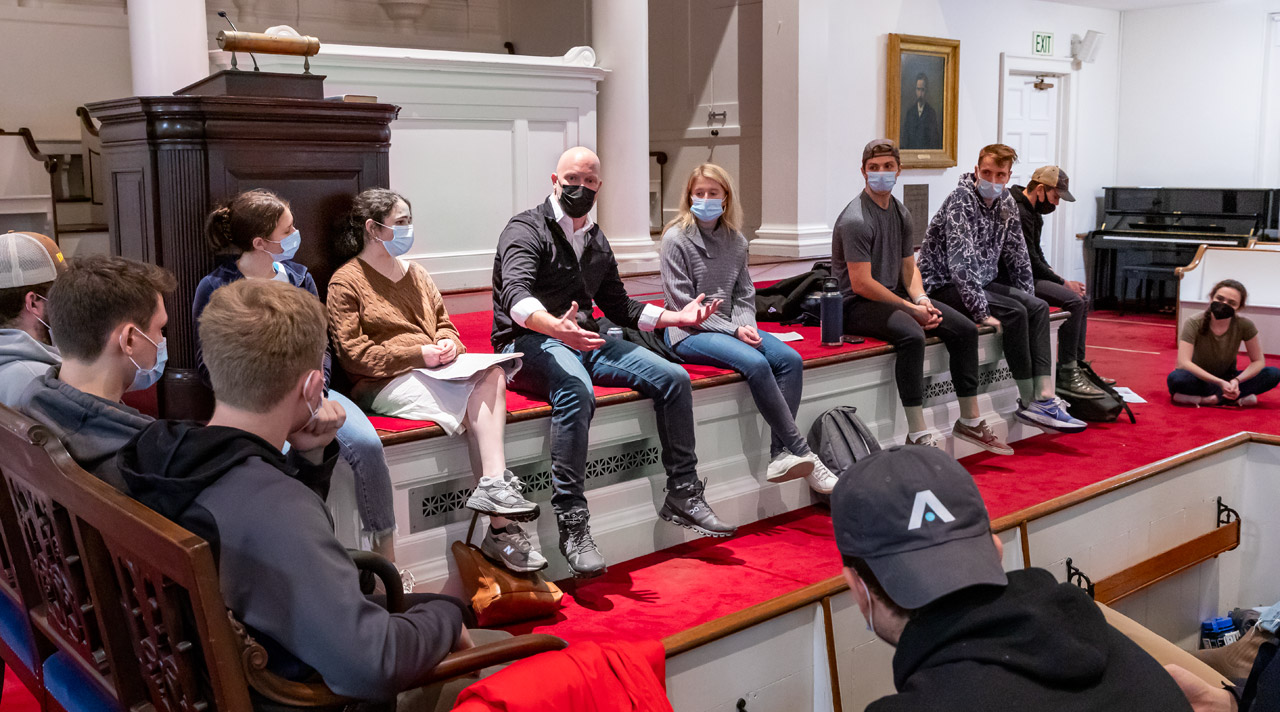
Run-DMC’s “Christmas in Hollis” is thumping through Seelye Mudd 206 on a wind-lashed December Monday, as two dozen students chat before class starts at 4 p.m., the din rising near the blackboard which is chalked with these words: “Understanding 9/11” and “Admiral Stavridis.”
Paul Rieckhoff ’98 did the chalking, picked the peppy playlist—he tells the students how cool it was to see Run-DMC perform at Amherst in the ’90s—and teaches this political science course. It’s called “Understanding 9/11: And on the 20th anniversary, preparing for the next 9/11.” Rieckhoff brings a unique perspective to bear. He’s the founder of Iraq and Afghanistan Veterans of America (IAVA). He was an army infantry officer in Iraq. He was also in Manhattan on 9/11, and was a first responder at Ground Zero.
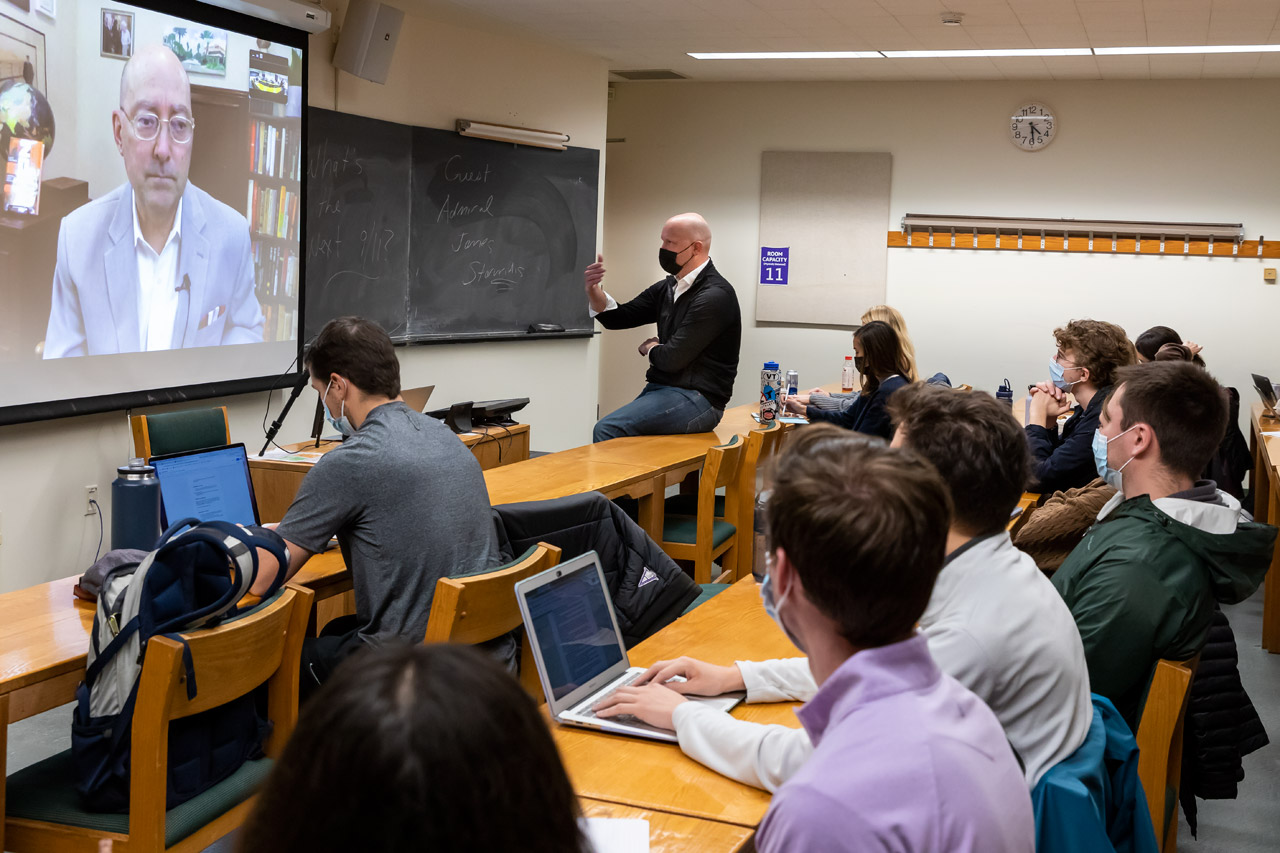
Admiral Stavridis (on screen) fields questions during a Zoom discussion with Rieckhoff’s class.
Admiral James Stavridis saw the explosion from his office at the Pentagon on 9/11. Since then, this retired four-star naval officer has been the NATO Supreme Allied Commander Europe, president of the Fletcher School of Law and Diplomacy at Tufts University, and was vetted as a possible vice presidential candidate for Hillary Clinton. Just last night, he was on CNN, adding insight on the growing friction between Russia and Ukraine. Today, he’ll be speaking to the class via video.
Rieckhoff is a big one for community-building in the world and right here: In and out of office hours, he strives to learn about the lives of his students. And, each week, he brings stacks of the recent edition of The Amherst Student newspaper, which the students read and converse about in class.
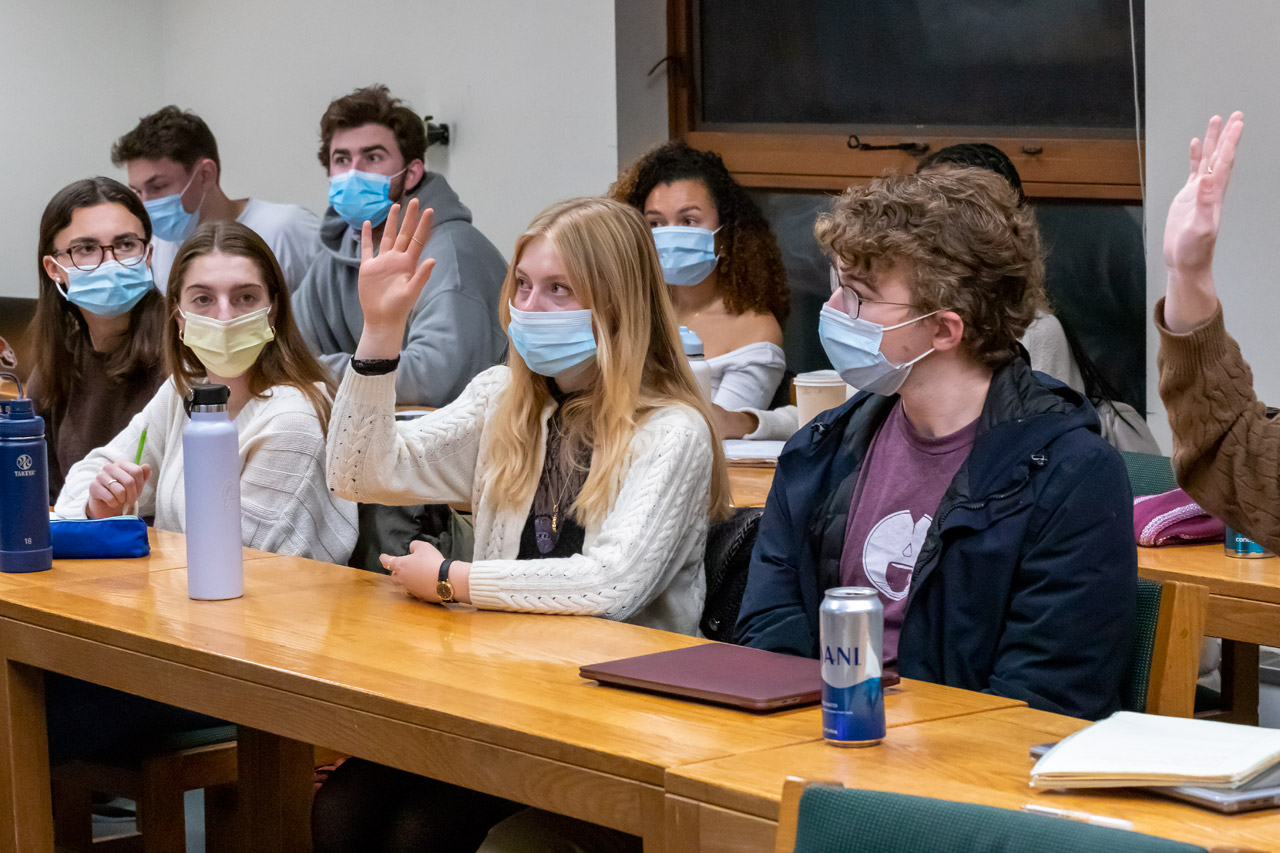
Héloïse Schep ’24 (center)
Rieckhoff “considers himself an activist,” says Héloïse Schep ’24, a student from the Netherlands. “He is always trying to find avenues that we can enact change in, areas that matter to us, and he ties leadership to the difference we want to make. You feel like you’re being heard—and the way this builds community is phenomenal.”
Before Stavridis gets patched in on Zoom, Rieckhoff kicks off this last session of the semester with another community-building ritual by asking each student to field a personal prompt. What do they like best about the winter break? Seeing family, says one student. Lights on the houses, says another. “Listening to excessive Mariah Carey,” chimes in Hampshire student Liam Studer, which gets a good laugh.
He then asks them to name their favorite virtual guest speaker this semester, from an impressive roster of government officials, change-makers and journalists, most known to Rieckhoff through his own advocacy work. Some students vote for presidential historian Michael Beschloss, some for Rob Serra, a New York firefighter called to the site of the destroyed World Trade Center. Another favorite is Zainab Salbi, the journalist and founder of Women for Women International, who spoke about what it was like to be an American Muslim after 9/11. But the most votes go to Amy McGrath, the retired U.S. Marine lieutenant who recently ran for U.S. Senate in Kentucky.
The students have prepped for today by reading 2034: A Novel of the Next World War, by Elliot Ackerman and Stavridis. It’s a story of cyber weaponry and worst-case scenarios. The class syllabus features plenty of other books, such as The 9/11 Commission Report (for which Bonnie Jenkins ’82 served as counsel) and The Looming Tower, and scores of relevant articles, videos and podcasts. It’s a full immersion for these students—half of whom weren’t even born when the attacks took place.
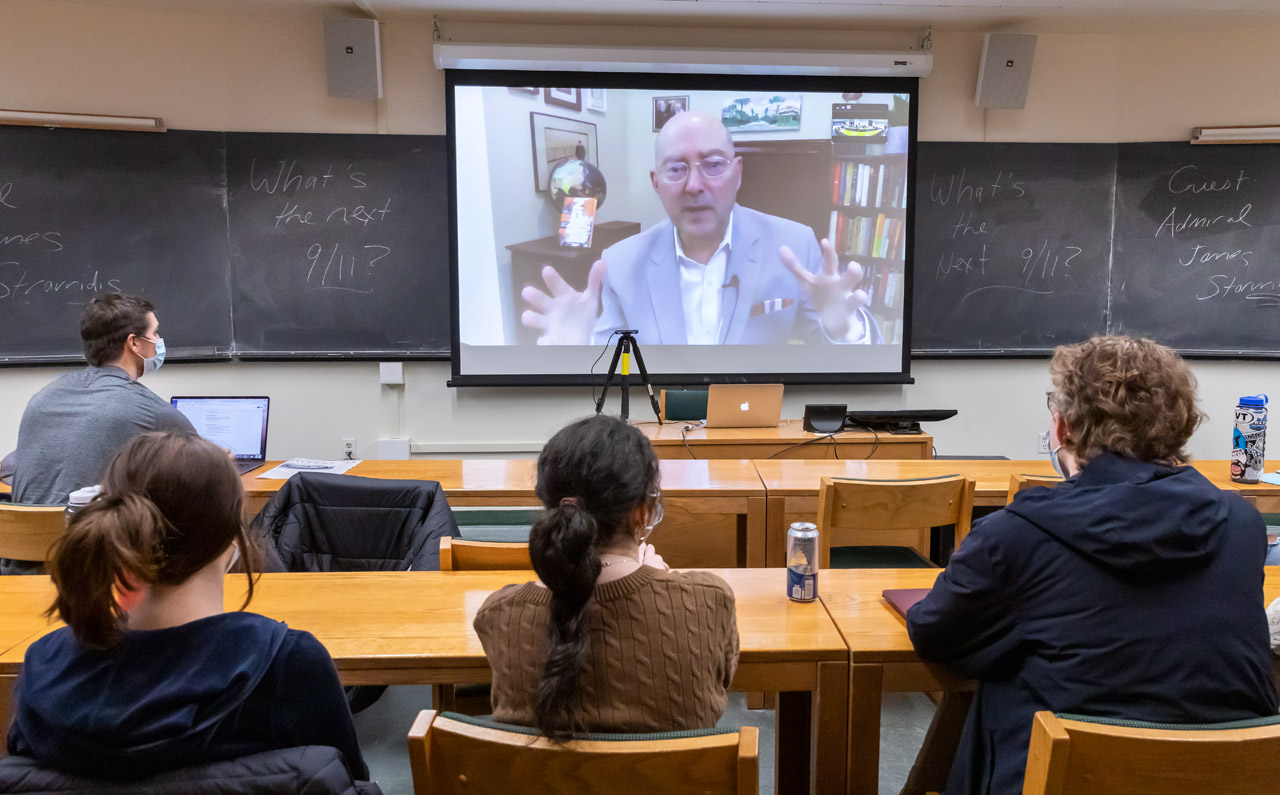
Admiral James Stavridis describes the plane crash at the Pentagon on 9/11.
“I watched the plane hit from the corner of my eye,” says Stavridis to the class, onscreen from Moscow. “I was 150 feet from the strike zone and saw a big explosion. The only reason I’m here talking to you is that the pilot’s wrist went slightly to the left. As I was tumbling out of the building, choking with smoke, I remember thinking how ironic it was. Here I was in the safest place in the world, by definition, surrounded by massive concrete walls, guarded by the best military in the most powerful place on earth. But was I safe? No.”
After a vibrant talk in which he quoted former CIA Director Robert Gates, Mario Puzo, FDR and more, Stavridis took questions. Rieckhoff asked what Stavridis saw as the biggest political threats of our time. Cyber-attacks, the admiral said, and climate change, the latter “one of those problems from hell, because if you wait to solve it, you can’t solve it.”
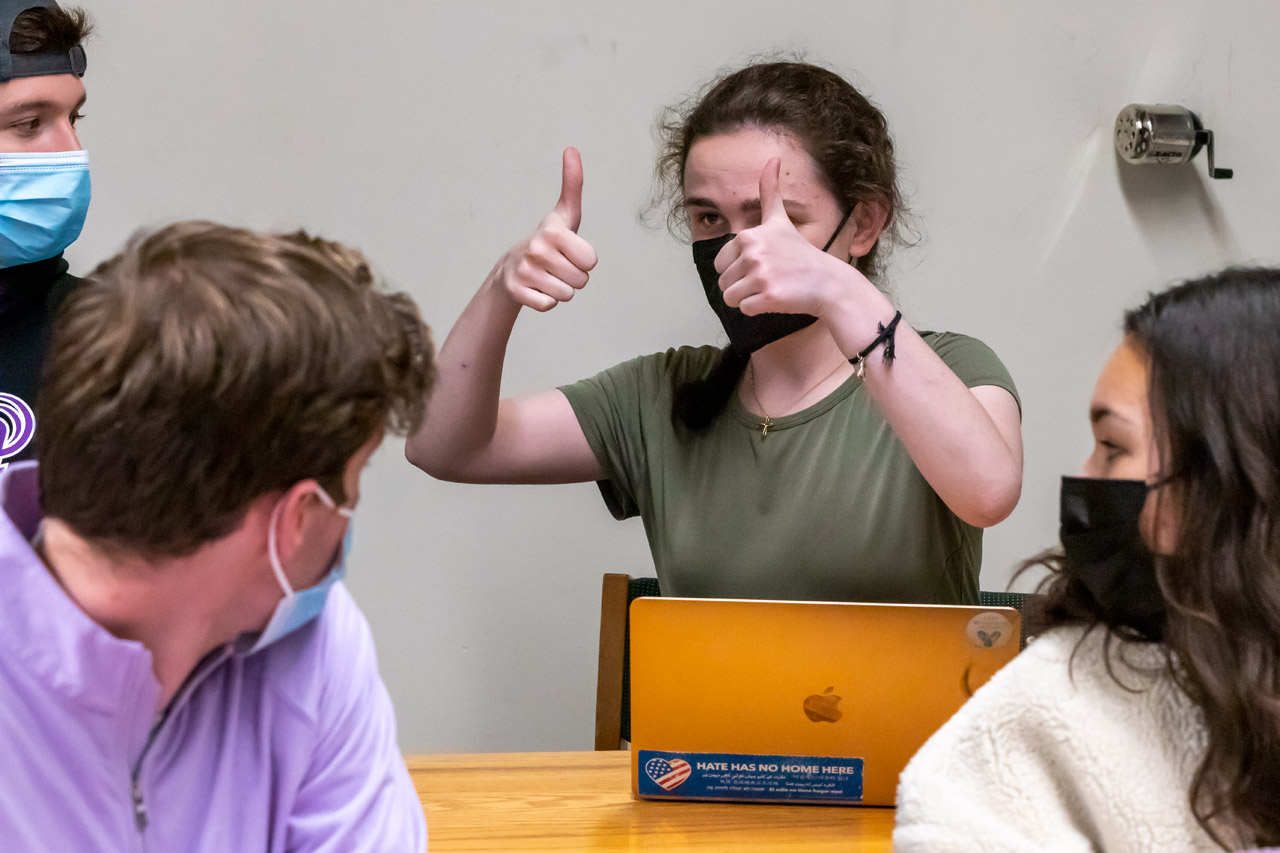
Katherine Holding ’24 in discussion with Admiral Stavridis.
Katherine Holding ’24 asked if was it better for a nation to be united in anger, as after 9/11, or to be divided, as during this pandemic. Anger can cloud judgment, said Stavridis. He argued: “After 9/11, we overreacted, and expanded the mission that led into the forever wars. Then we had to wind all that back at a great cost in blood and treasure.”
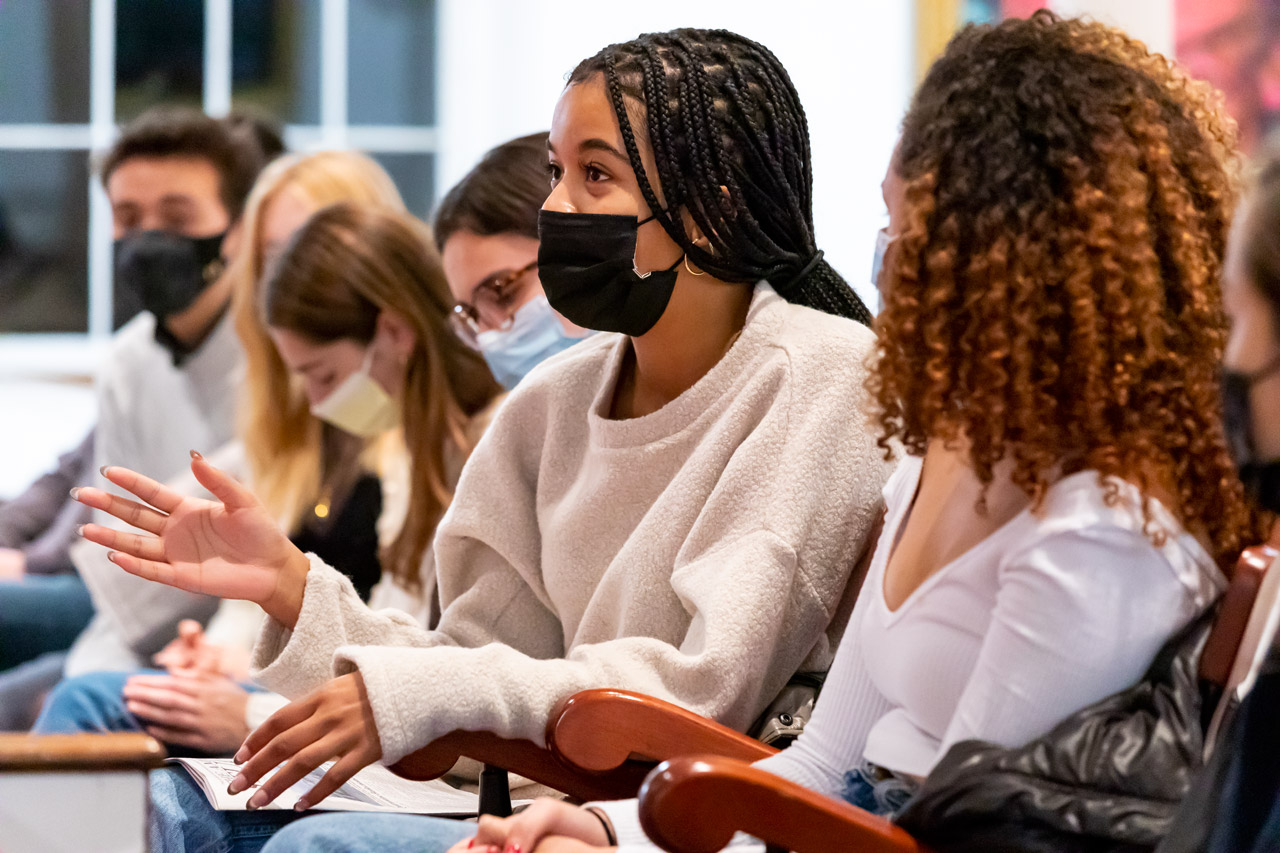
Kalaria Okali ’22 contributes to the discussion when class resumed in Johnson Chapel.
After a dinner break at Val, the class reconstituted at Johnson Chapel and sat in a circle, talking about the experience of this class itself, getting to know each other in deeper ways. “You’ll all face leadership challenges,” said Rieckhoff. “Fall back on all you learned this semester and all your time at Amherst.”
Then he reminded them to submit a song for the class playlist, which he’ll then distribute “as a sort of memory box of our time together.” Finally, he gave them the prompt for their final paper: “What do you want people to understand about 9/11? Write it to someone who is not yet born. That’s the mission.”
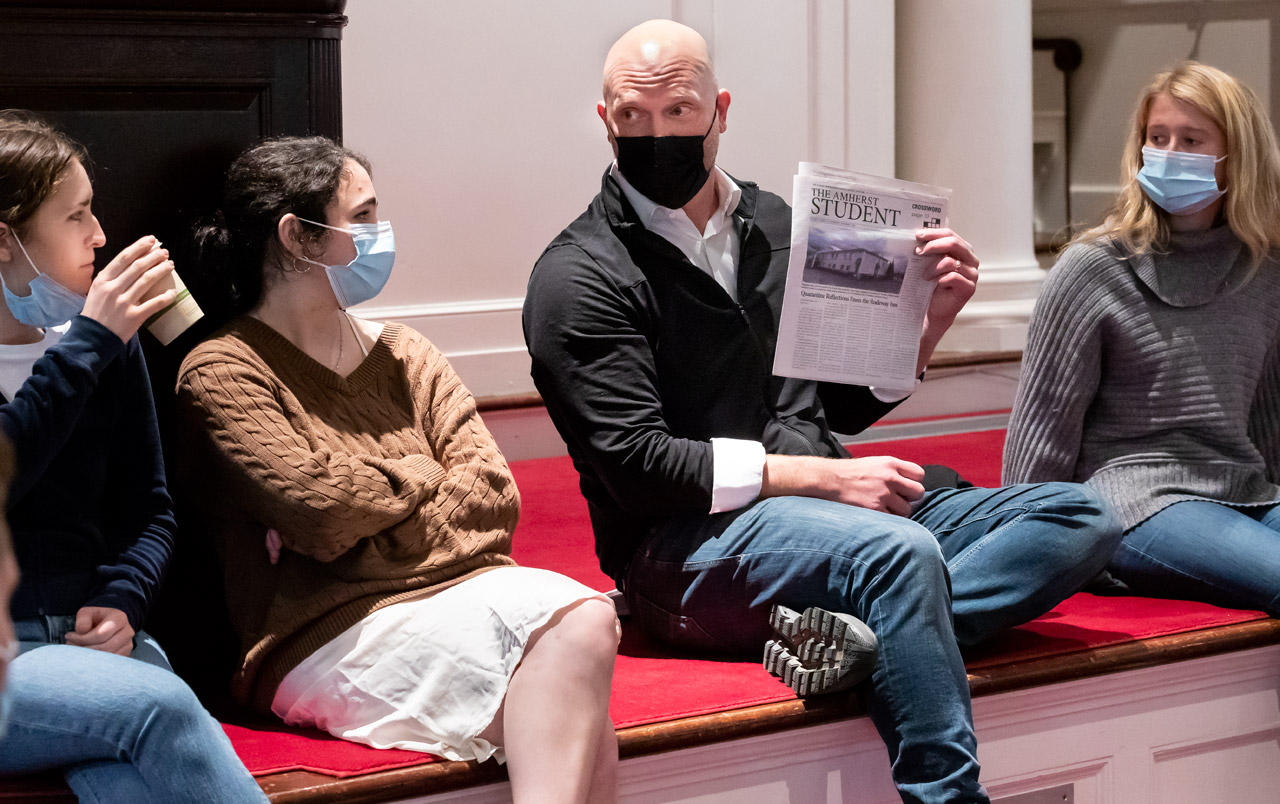
Rieckhoff commends students quoted in The Amherst Student for having the courage to speak up on the record.
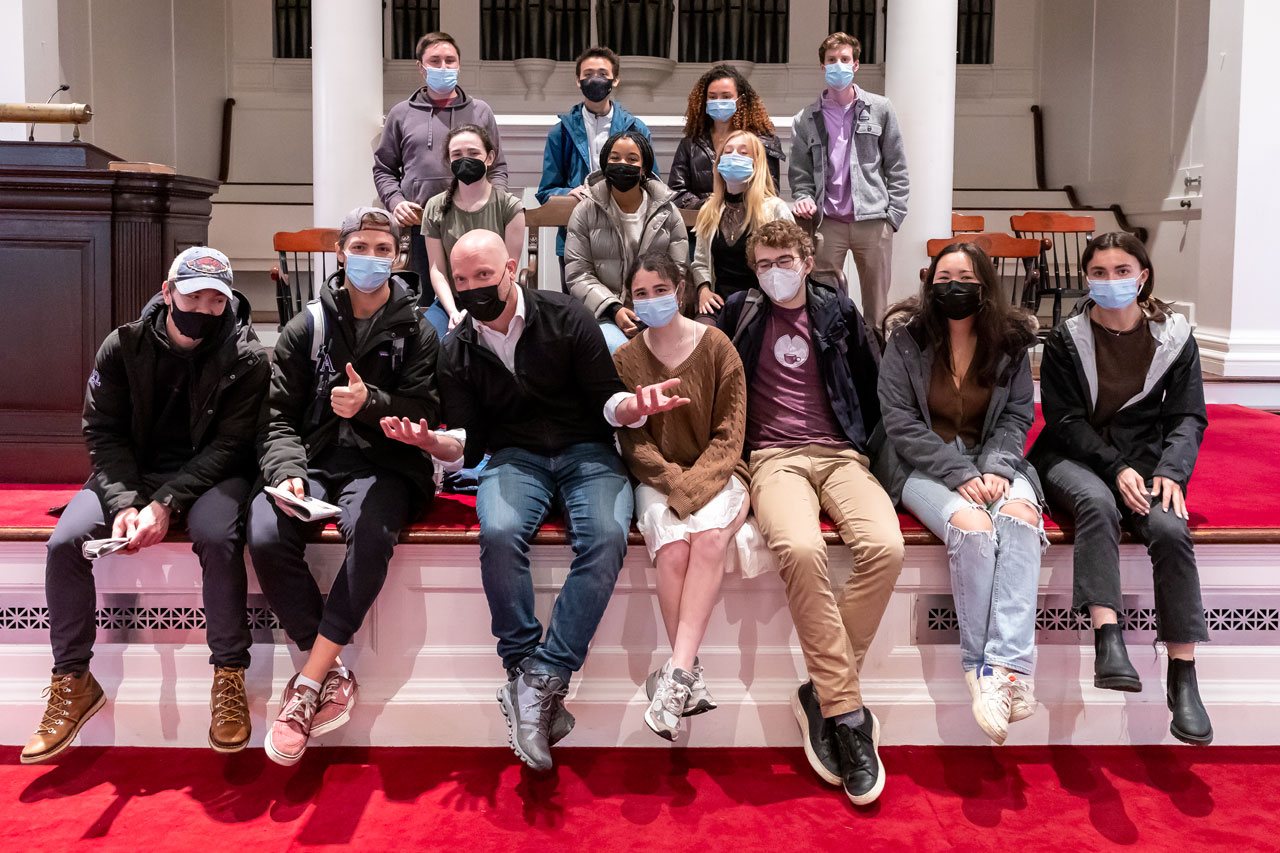
Some students posed for an impromptu portrait after class.